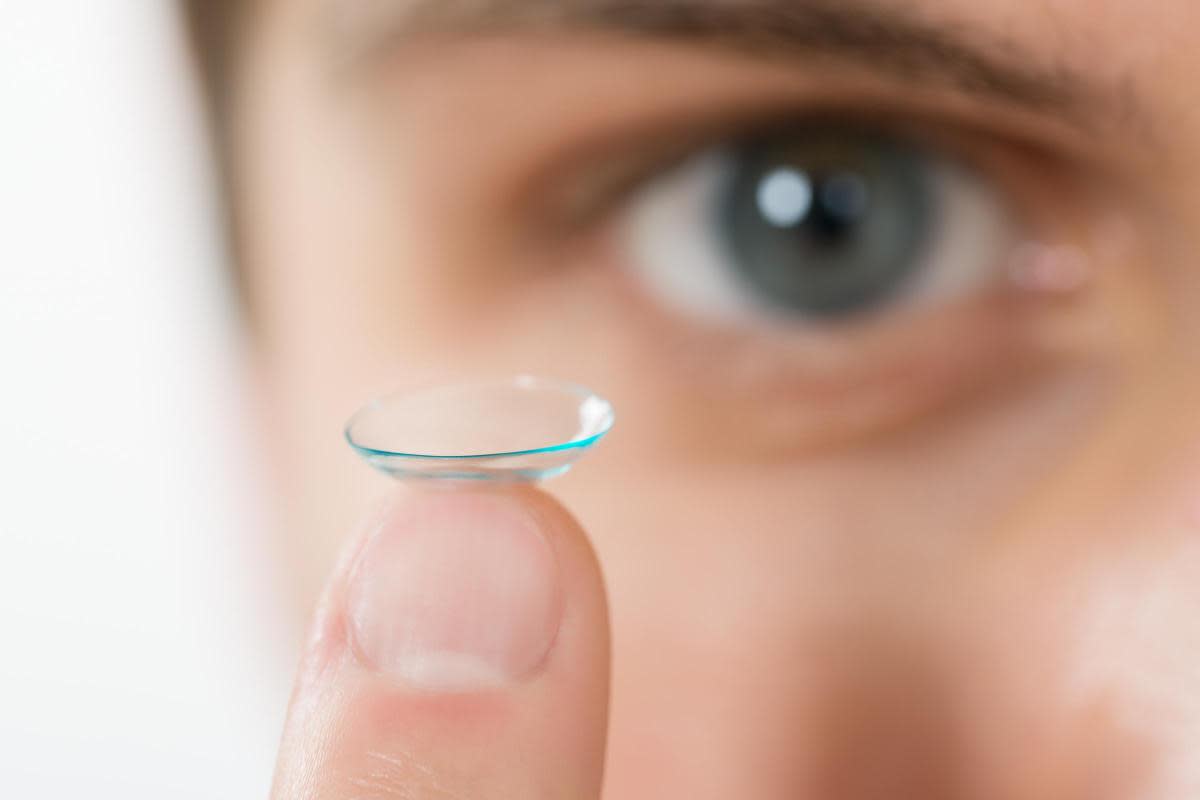Optometrist's warning to everyone wearing contact lenses this summer

Optometrists have issued a warning to everyone who wears contact lenses as the summer holidays approach.
With the warmer weather arriving, many of us will be eyeing up the pool as a way to cool off.
But can you swim with contact lenses in?
Those who do take a pool plunge with their lenses in could end up with nasty eye infection, and in some cases even the complete loss of their eyesight.
That’s according to Morgan Sayes, optometrist at contact lens retailer Lenstore, who has issued a strong warning about swimming in contact lenses.
She said: “You might not think twice about jumping in the pool or taking a swim in the ocean to cool yourself down when it’s hot, but there are many hidden dangers for your eyes that are lurking in the water.
“This is especially important for soft contact lens wearers, as these absorb chemicals and bacteria and can easily get lost if they detach in the water.
“The best way to protect yourself is by wearing googles which fit comfortably on your nose and create a seal around your eyes without any gaps.
“You should also remove your contact lenses every time you get in contact with water, whether that’s in the shower or in the swimming pool.
“While swimmer’s eye caused by chlorine in pools should subside after a few hours, if your symptoms last longer or get worse, you should seek professional medical advice as soon as possible.”
These are her warnings for swimming with contact lenses in this summer
The chemicals in pools can irritate your eyes
Chlorine and other chemicals are often used as a sanitiser to keep swimming pools clean. However, the chemical can form harmful by-products when it encounters organic compounds like sweat or skin.
These so-called chloramines can increase irritation and infection in your eyes, especially if you wear soft contact lenses, which are porous and absorb chemicals and bacteria.
When exposed to fresh water, soft lenses can also tighten and starve your eyes of oxygen, leaving them feeling dry and uncomfortable.
The pool may not be as clean as it seems
Viral conjunctivitis, or ‘pink eye’, is a common eye condition that involves inflammation of the conjunctiva, which is a thin membrane that lightly covers the whites of your eyes and the inside of your eyelids.
Because chlorine does not effectively kill viruses, it can also be spread easily through contaminated swimming pools.
Dangerous bacteria also thrive in all types of water, including tap water, swimming pools, showers and swimming pools.
The chlorine which is used to treat pools removes most of the water-borne bacteria, but it can’t get rid of them all.
Dangerous bacteria are also lurking in the sea
Swimming in the ocean can be harmful for your eyes, as the high salt content can dehydrate the sensitive tissues and cause irritation, redness and itching.
Microbial life is also thriving in seawater, as even one single drop of seawater harbours more than a million bacteria.
Most bacteria aren’t harmful to humans, but they can cause painful and uncomfortable bacterial infections leading to redness, itching, discharge and burning in the eyes.
Infections caused by amoeba could lead to blindness
Acanthamoeba is another common organism commonly found in fresh water (such as lakes).
It generally doesn’t cause harm but can result in a serious eye disease if it infects the cornea. Particularly, an injury or scratch on the corneal surface can leave it vulnerable to infection.
The symptoms of acanthamoeba keratitis include pain and redness, blurred vision, light sensitivity, a gritty sensation, and excessively watery eyes.
In very severe cases acanthamoeba infections can cause loss of vision.
Dirt or sand can scratch your eye and cause serious damage
Unlike pools, which are regularly cleaned, there is lots of dirt and sediment in the ocean which if stirred up may cause blurry vision, sensitivity to light, and redness.
If you do get sand or debris stuck in your eyes, you shouldn’t rub your eyes as this can further scratch the surface of the cornea.
Instead, you should blink several times and allow your tears to flush out the sand and flush the eyes with clean water or a saline solution.

 Yahoo News
Yahoo News 
